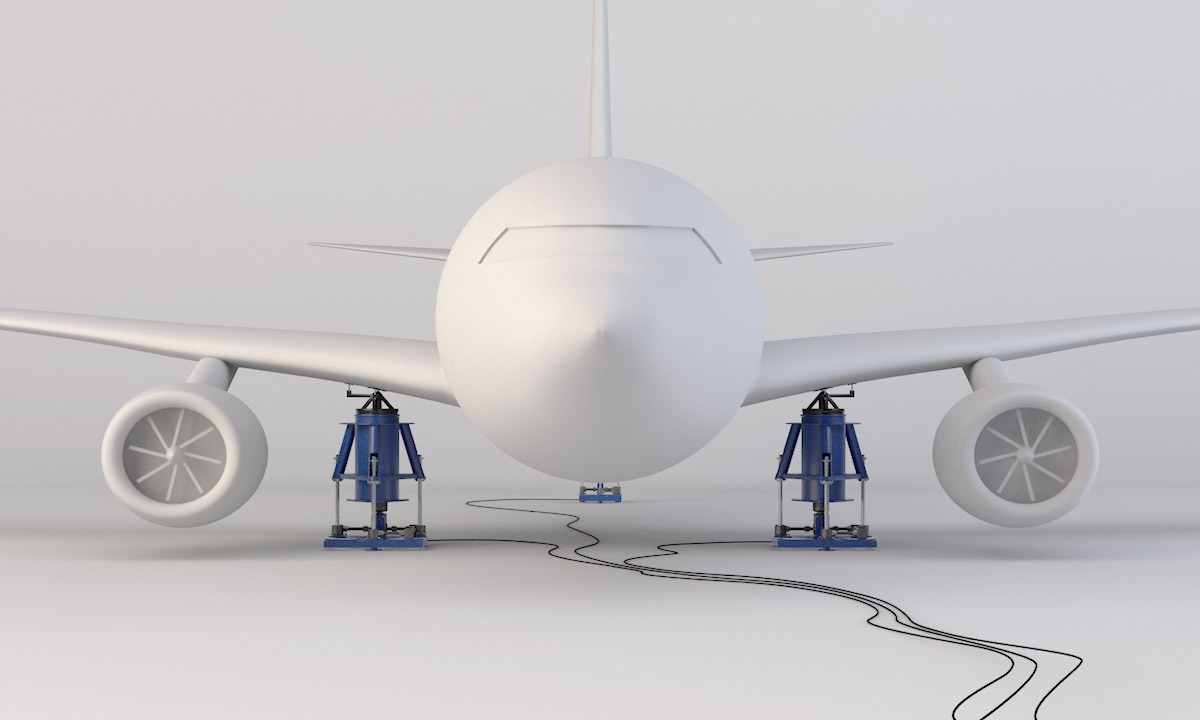



Testing
Fabreeka has a leading role in providing vibration isolation systems and design techniques to meet the increasing demands of automotive, aircraft and aerospace testing in simulated environments. The company has been providing vibration isolation and shock control products for the past decade, utilizing combined expertise for customized projects and turnkey solutions.
In doing so, the solutions for auto testing include the design of test equipment support foundations and their reaction masses together with structural and dynamic analysis. Applications range from dynamometers, rolling road isolation, road simulators, multi-axis shaker tables to many kinds of other test equipment.
To support engineers in aircraft testing, Fabreeka has designed a number of soft support systems using standard and custom pneumatic isolators for ground vibration testing, while the company provides low frequency vibration isolation systems for critical testing applications in the aerospace and defense industry, which require ultra-low frequency isolation and vacuum chamber isolation.
Additionally, Fabreeka provides solutions for foundation isolation as well as for material testing machines including tensile, compression and fatigue testing equipment that can create vibration and shock.
Aerospace Testing
When performing testing of large spacecraft or hardware that will be launched into orbit, it is necessary to conduct testing in a space-simulated environment. To achieve this, a vacuum chamber or thermal vacuum chamber is used which creates an environment to simulate the pressure and thermal effects of launch or space travel in orbit.
It is necessary to decouple the spacecraft or payload from the chamber using Fabreeka vibration isolators to attenuate environmental vibration from the testing. In some cases, where feasible, the entire chamber with payload is decoupled from the test facility. In cases where the size of the vacuum chamber, or the existing chamber, does not allow for external isolators the test payload must be isolated inside the chamber. To achieve this, a vacuum compatible isolation system is used. When isolators are used inside a vacuum chamber, they must meet strict material specifications to limit out-gassing and be constructed to fulfill particulate and molecular cleanliness requirements as well. Additionally, in thermo-vacuum applications, the isolators may be required to function in temperature extremes where heater blankets are necessary to keep them at an operable temperature.
Applications often include nano-type measurements and can have error budgets within microns or tenths of arc seconds. In this sensitive field, experts cooperate with Fabreeka and use customized stainless steel PAL isolators for vacuum chamber isolation with a special design to keep air permeation to a minimum so the vacuum chamber can achieve deep vacuum levels. The assembly can be done in a clean-room environment, and isolator components can be baked out to minimize out-gassing.
Aircraft Testing
Fabreeka has designed a number of soft support systems (SSS) using standard and custom pneumatic isolators for ground vibration testing (GVT) of aircraft. To obtain accurate results during GVT, the modal testing of the aircraft requires simulation of a “free-free” condition. To achieve this condition, Fabreeka works with the structural and dynamics testing groups of aircraft manufacturers to design the required SSS for the GVT.
The pneumatic isolators support and decouple the aircraft from the ground when the aircraft is undergoing GVT and modal or flutter analysis. The role of the system is especially important in identifying structural resonances and validating flutter models. The SSS can include a mechanical jacking system to lift the aircraft off of its landing gear. Fabreeka’s custom isolator designs can achieve a natural frequency as low as 0.5 Hz.
Professionals are well aware that they save time during testing by using a Fabreeka custom system since traditional methods such as bungee cords are very time consuming due to the bungees being changed out for every load condition.
Auto Testing
Fabreeka is also a leader in providing vibration isolation systems and design techniques to meet the growing demands of vehicle testing in simulated environments where dynamometers, engine test rigs, road simulators and multi-axis shaker tables are in use. Here, Fabreeka’s technical expertise includes the structural design of support structures and reaction masses; static and dynamic analysis and acceptance testing.
In many cases when the forces are not extreme and the frame or base of the machine is rigid, Fabreeka’s PAL or RLA pneumatic isolators are directly placed under the equipment, namely dynamometers or vibration tables. RLA isolators offer a larger piston stroke to handle larger dynamic loads typically seen in vibration testing applications such as shakers and 4-post-shakers without compromising the natural frequency of the system.
PAL or RLA pneumatic isolators are also the right choice for supporting a concrete foundation with the test equipment. Over decades, Fabreeka has gained the expertise to develop all types of vibration isolation projects for automotive testing and can provide a turnkey solution including foundation design, demolition, construction work, bedplate, installation and acceptance testing.
Countless successful projects with car and truck manufacturers are also proof of Fabreeka’s know-how from concept to the final production model in rolling road isolation.